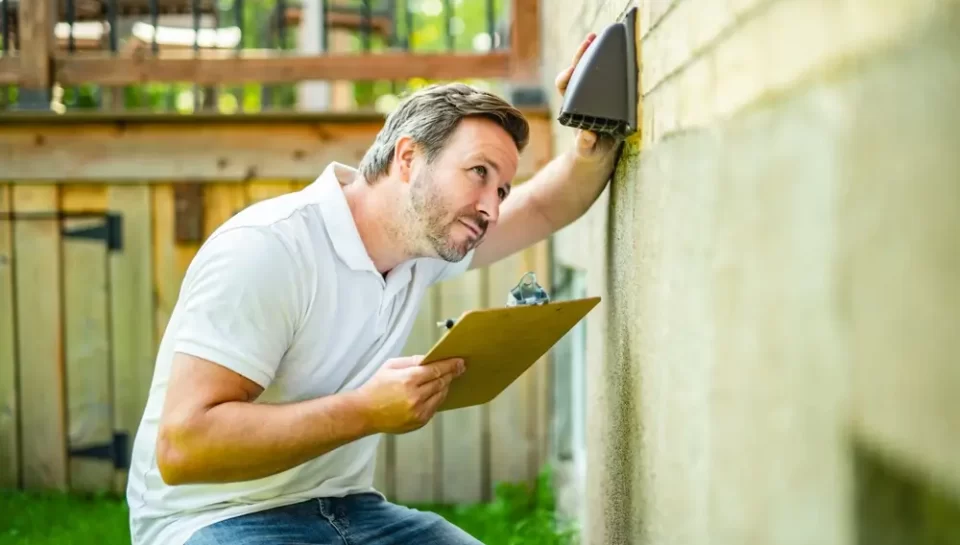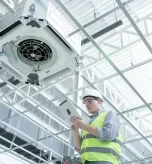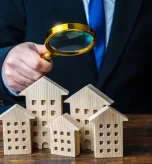When buying or renting a home, one of the most critical steps is getting a certified property inspection. A detailed inspection helps identify potential problems that may not be visible during a casual walk-through. If you own a home, rent, or are a landlord, knowing common problems in property inspections can help you. This knowledge can save you money on repairs and prevent unexpected maintenance issues.
A comprehensive property inspection covers everything from structural integrity to plumbing, electrical systems, and roofing. Knowing what to expect can help you make informed decisions before finalizing a property deal.
1. Structural Problems
One of the most severe issues that professional property inspections reveal is structural damage. A weak foundation, cracked walls, or sagging ceilings can indicate major underlying problems. These issues often arise because of poor construction, water damage, or the natural settling of the house over time.
Signs of structural problems include:
- Large cracks in walls or ceilings
- Uneven floors
- Doors and windows that don’t close properly
- Leaning walls or chimneys
Ignoring these warning signs can lead to costly repairs. This makes certified property inspections crucially important before buying or renting a home.
Read More: Commercial Property Inspections: Key to Safe Investments
2. Plumbing Issues
Leaky pipes, clogged drains, and outdated plumbing systems are frequent findings in rental property inspections. Water leaks, if left untreated, can lead to mold growth, structural damage, and costly repairs.
Common plumbing issues include:
- Dripping faucets and leaking pipes
- Slow drainage in sinks and tubs
- Low water pressure
- Rusty or corroded pipes
A thorough property inspection checks that plumbing systems work well. This helps prevent unexpected water damage later.
3. Electrical System Defects
Faulty electrical wiring is a safety hazard that should never be ignored. An outdated or improperly installed electrical system can cause power failures, electrical shocks, or even house fires. Professional property inspections thoroughly check the wiring, circuit breakers, and overall electrical system to ensure safety.
Signs of electrical problems include:
- Frequent power outages
- Flickering or dimming lights
- Burning smells from outlets
- Overloaded circuit breakers
Landlords should always include an inspection checklist for rental properties. This checklist must evaluate the electrical system. It helps ensure that the system meets safety standards.
4. Roofing and Gutter Issues
The roof is one of the most crucial parts of a home, protecting it from weather elements. A final property inspection often reveals roofing issues such as missing shingles, leaks, or water pooling. Damaged roofs can lead to water infiltration, mold growth, and even structural damage.
Common roofing problems include:
- Missing, cracked, or curling shingles
- Leaks and water stains on ceilings
- Blocked or broken gutters
- Moss or algae growth on shingles
If a roof requires extensive repairs, buyers and renters should negotiate these fixes before closing the deal.
5. HVAC System Malfunctions
Heating, ventilation, and air conditioning (HVAC) systems are essential for maintaining indoor comfort. A malfunctioning system can lead to high energy bills and inefficient heating or cooling. Premier property inspections evaluate HVAC systems to ensure they function properly.
Signs of HVAC problems include:
- Unusual noises from the furnace or AC
- Inconsistent room temperatures
- Poor airflow
- High energy bills
Regular maintenance and a property inspection service help homeowners and landlords avoid expensive HVAC repairs.
6. Mold and Moisture Problems
Excess moisture is one of the biggest threats to a home’s longevity. Advanced property inspections often find mold growth.
Moisture problems can cause serious health issues. This is especially true for people with allergies or breathing problems. Common causes of moisture issues include:
- Leaky roofs or pipes
- Poor ventilation in bathrooms and basements
- Improperly sealed windows and doors
- Flood damage
Mold remediation can be expensive, so it’s crucial to address moisture issues early on through certified property inspections.
7. Pest Infestation
Termites, rodents, and other pests can cause extensive damage to a property. Rental property inspections often reveal pest infestations that can compromise the home’s structure and lead to health risks.
Signs of pest problems include:
- Droppings or nests in hidden areas
- Unexplained damage to wood structures
- Unusual sounds in the walls or attic
- Musty odors indicating termite activity
A comprehensive property inspection can help detect pest issues before they become a costly problem.
8. Safety Hazards
Every home should meet safety standards to protect its occupants. A checklist for inspecting commercial properties helps ensure safety features work. This includes smoke detectors, carbon monoxide alarms, and fire exits.
Common safety hazards include:
- Missing or broken smoke alarms
- Unstable stair railings
- Faulty locks and security systems
- Trip hazards like loose flooring
Ensuring safety compliance is especially crucial for landlords conducting rental property inspections.
Read More: Best Property Inspection Companies Ensuring Peace of Mind
9. Poor Drainage and Landscaping Issues
Water pooling around the foundation can lead to severe damage over time. Property inspection services often check for proper drainage and landscaping issues that could impact a home’s stability.
Drainage problems to watch for:
- Standing water near the foundation
- Cracks in walkways because of shifting soil.
- Overgrown trees with roots damaging pipes
A well-maintained drainage system protects the home from water damage and foundation problems.
10. Poorly Maintained Exteriors
Curb appeal reflects not only aesthetics but also how well someone has maintained a home. Commercial property inspection companies often find issues with siding, paint, and exterior features that indicate deeper structural concerns.
Exterior maintenance issues include:
- Peeling paint and cracked siding
- Rotten wood on decks or porches
- Crumbling brick or stonework
- Broken or misaligned fences
Regular maintenance and professional property inspections can help homeowners address exterior wear and tear before it worsens.
FAQs
How often should someone conduct a property inspection?
For homeowners, a comprehensive property inspection every few years helps maintain the home’s condition. Landlords should schedule rental property inspections before new tenants move in and annually for upkeep.
2. What does a certified property inspection include?
A certified property inspection covers structural integrity, electrical systems, plumbing, HVAC, roofing, and safety features. It ensures a property meets health and safety standards.
3. How can I prepare for a property inspection?
If you are selling or renting your home, ensure all utilities are on. Make sure there is clear access to all areas. Fix any minor repairs before you schedule a property inspection service.
4. Are property inspections necessary for rental properties?
Yes! Rental property inspections help landlords maintain the home, ensure tenant safety, and comply with local regulations. A house inspection checklist for rental property ensures that you overlook nothing.
5. Can I do a home inspection myself?
A simple walkthrough can help you find clear problems. However, you should think about getting a professional property inspection for a complete check. Trained inspectors use specialized tools and checklists to assess hidden problems.
Final Thoughts
A detailed certified property inspection is essential whether you’re buying, selling, or renting a home. It helps identify potential risks, ensures compliance with safety standards, and saves you from unexpected repair costs.
You can make good choices and protect your investment. Work with top property inspectors. Use a rental property inspection checklist.
For reliable property inspection services, visit Key Property Inspection Group. Make sure your home is in the best condition!





